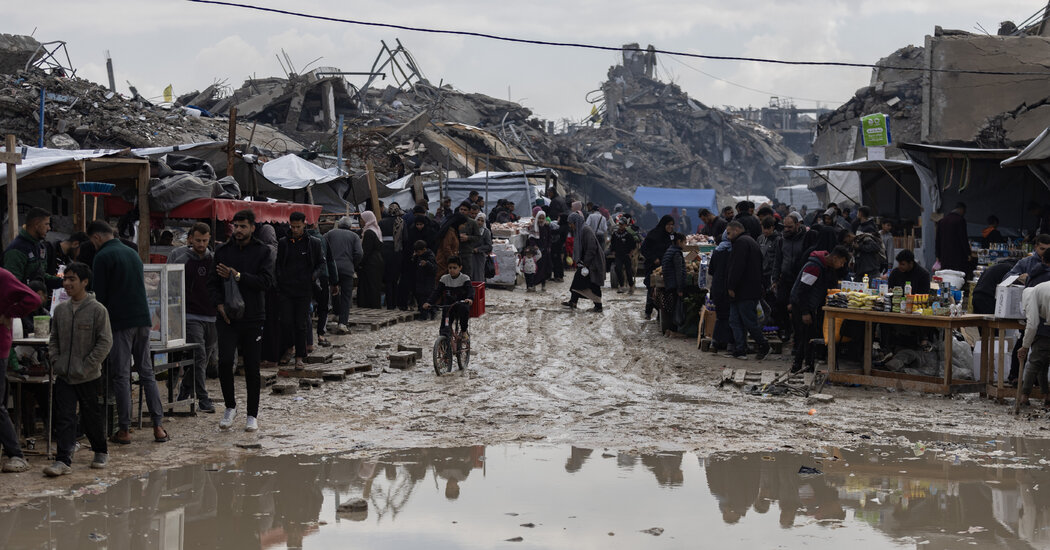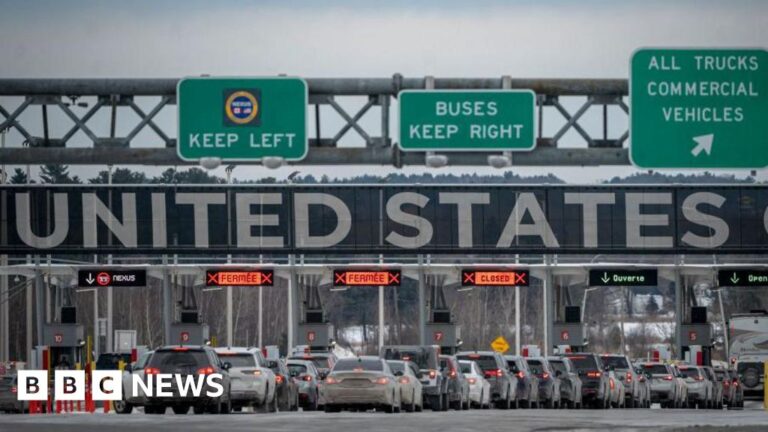Here is the result in plain text:
The leaders of Gulf Arab states met on Friday to strategize with their Egyptian and Jordanian counterparts in an effort to counter President Trump’s controversial proposal to redevelop Gaza under U.S. control and displace its Palestinian residents. The meeting in the Saudi capital, Riyadh, was in preparation for a broader Arab League summit in Egypt on March 4. It ended after several hours without any official statement of what was discussed or decided.
Mr. Trump’s suggestion this month that the United States might take control of Gaza, develop it into the “Riviera of the Middle East” and relocate its Palestinian residents to neighboring countries like Egypt and Jordan was met with astonishment and outrage across the Arab world. His aides then reframed it as a challenge to leaders of the Middle East to come up with a better alternative.
“All these countries say how much they care about the Palestinians,” Secretary of State Marco Rubio said last week. “If the Arab countries have a better plan, then that’s great.”
Then, Arab governments scrambled to come up with one.
Mr. Trump said on Friday that he did not intend to impose his Gaza plan on anyone.
“I’m not forcing it. I’m just going to sit back and recommend it, and then the U.S. would own the site,” he said in an interview with Fox News Radio. “There’d be no Hamas and it would be developed, and you’d start all over again with a clean plate.”
Egypt, Jordan, Saudi Arabia, Qatar and the United Arab Emirates have been working together to forge an alternative idea for Gaza in which Arab countries would help fund and oversee reconstruction, while keeping the two million Palestinian residents in place and preserving the possibility of a Palestinian state, according to diplomats and officials briefed on the efforts.
But a key sticking point remains the question of postwar governance in Gaza.
A proposed Egyptian plan would most likely include the formation of a committee of Palestinian technocrats and community leaders, all unaffiliated with Hamas, who could run Gaza after the war.
But Israeli leaders have said they would oppose any postwar plans that would pave the way to Palestinian sovereignty. Arab leaders insist they would support only a proposal that at least nominally forged a path toward Palestinian statehood. For any Arab strategy on the governance of Gaza, the Arab leaders would want the blessing of the Palestinian Authority, the internationally recognized body that administered Gaza until Hamas wrested control of the territory nearly two decades ago.
But the authority’s president, Mahmoud Abbas, has appeared wary of any plan that does not give him full control of Gaza. Mr. Abbas did not attend Friday’s talks, according to an official photograph of the leaders released by the Jordanian royal court.
Hamas officials have said they would be willing to cede control over civilian affairs to another power but have refused so far to say they would disband their military wing, an unacceptable position for both Israel and Mr. Trump.
Source link




